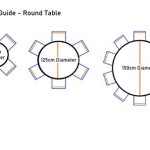Raised Garden Bed Vegetable Layout
Raised garden beds offer several advantages over traditional gardens. They improve drainage, extend the growing season, reduce soil compaction, and make it easier to control weeds. Planning the layout of your raised garden bed is crucial to maximizing space and ensuring optimal plant growth. Here's a comprehensive guide to help you design an efficient and productive raised garden bed layout.
1. Determine Bed Size and Shape
The size and shape of your raised garden bed will depend on the available space and your gardening needs. For a raised bed that's easy to reach from all sides, a width of 3-4 feet is recommended. The length can be adjusted based on the available space and the number of plants you want to grow. Popular shapes include rectangles, squares, and L-shapes.
2. Plan for Companion Planting
Companion planting refers to the practice of planting species together that benefit each other. For example, planting tomatoes with basil can deter pests, while planting carrots with onions can improve insect control. Research companion planting techniques and determine what combinations will work best for your garden.
3. Consider Plant Height and Spacing
When planning the layout, take into account the mature height and spread of each plant. Place taller plants at the back or center of the bed so they don't shade the shorter plants. Follow the recommended spacing guidelines on seed packets or plant labels to ensure adequate airflow and sunlight penetration.
4. Create a Rotation Plan
To maintain soil health and prevent disease, it's important to rotate crops each season. Plan a rotation schedule that includes heavy feeders (like tomatoes and peppers) followed by medium feeders (like beans and carrots) and then light feeders (like lettuce and spinach). This approach helps maintain soil fertility and reduces the risk of soil-borne diseases.
5. Maximize Vertical Space
In raised garden beds, you can utilize vertical space to increase your gardening area. Trellises or stakes can be used to support climbing plants like tomatoes, cucumbers, and beans. This not only saves space but also improves airflow and sunlight exposure.
6. Incorporate Pathways
Allowing for pathways between raised garden beds is essential for easy access to plants for maintenance, harvesting, and watering. Pathways can be made of gravel, mulch, or pavers. They should be wide enough to comfortably walk through while minimizing soil compaction.
7. Provide Water Access
Adequate water is crucial for plant growth. Plan the location of your raised garden bed near a water source or consider installing an irrigation system. Soaker hoses, drip irrigation, or overhead watering can be used to provide consistent moisture to your plants.
8. Enhance Accessibility
For individuals with mobility limitations or physical challenges, consider raised garden beds with wheelchair accessibility. These beds are often taller and have wider pathways to accommodate wheelchairs or other assistive devices.
9. Consider Shade and Sun Exposure
Vegetables have varying sun requirements. Determine which areas of your garden receive full sun, partial shade, or full shade. Plan the layout accordingly, placing sun-loving plants like tomatoes and peppers in full sun and shade-tolerant plants like leafy greens in partial shade.
10. Protect from Pests and Animals
Raised garden beds can be vulnerable to pests and animals. Consider using row covers, netting, or companion planting to deter insects and birds. Physical barriers like fences or chicken wire can be installed to protect against larger animals like deer and rabbits.

4x8 Raised Bed Vegetable Garden Layout Ideas What To Sow Grow

Raised Bed Garden Plan Must Love Lists

4x8 Raised Bed Vegetable Garden Layout Ideas What To Sow Grow

4x8 Raised Bed Vegetable Garden Layout Ideas What To Sow Grow

Vegetable Garden Layout Planning Bonnie Plants

Plans For Small Space Vegetable Gardens Gardener S Supply

How To Plan For A Raised Garden Bed Brepurposed

Planning Your Vegetable Garden Mapping The Beds

Raised Bed Vegetable Garden Layout Ideas

Raised Bed Vegetable Garden Plan Modern Frontierswoman








